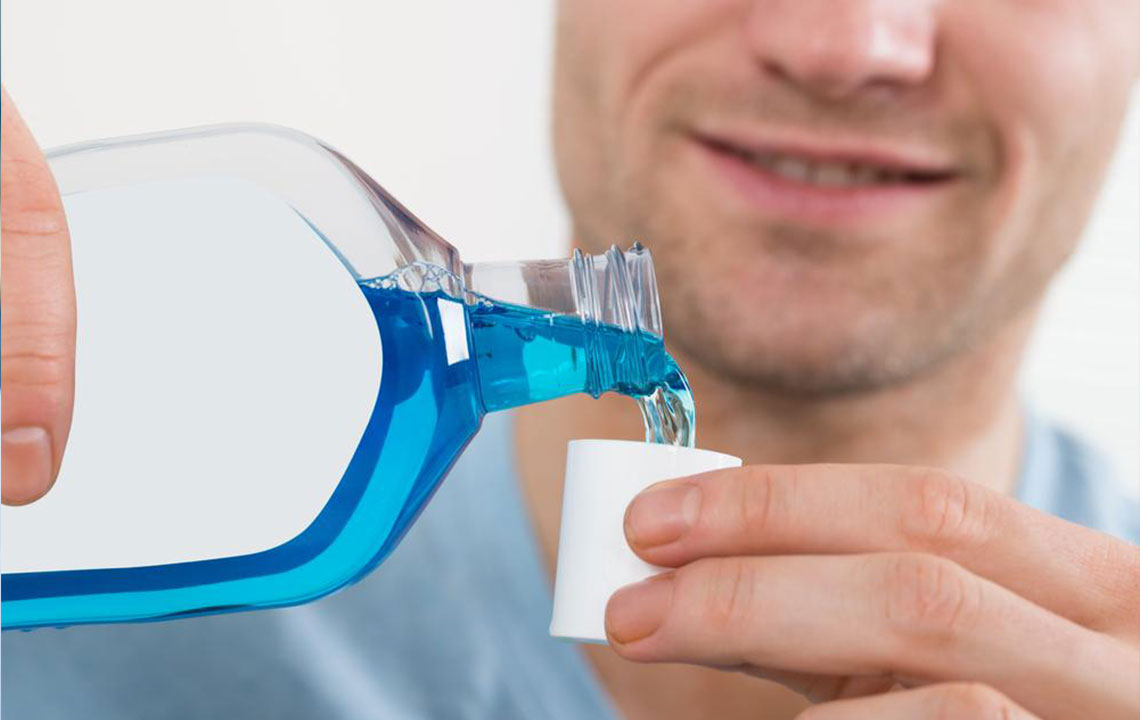All You Need to Know about a Hydrogen Peroxide Mouthwash

Gum diseases, bad breath, and tooth decay are some of the primary oral healthcare conditions. In most cases, a good dental hygiene can help you fight the situation. But, even if you have a high dental hygiene it does not ensure that you will not have any oral health issues. Hydrogen peroxide mouthwashes are an ideal remedy if you are suffering from oral health diseases or gum issues. It also helps in cleansing your mouth and keeps them away from germ building, strengthens your enamel and keeps plaque away.
Here’s how hydrogen peroxide mouthwash works:
- Hydrogen peroxide mouthwash is a mild antiseptic that helps you get rid of minor irritations in your mouth caused by conditions like gingivitis, dentures and other oral health conditions.
- It works by releasing oxygen when it is rinsed in the mouth. The oxygen causes foaming that removes the mucus formed and cleanses the area.
Let us look at some of the tips to use hydrogen peroxide mouthwash:
- If you buy hydrogen peroxide mouthwash from the market, make sure you read all the instructions on the product carefully and follow them diligently.
- Some brands give you a concentrated version of the product, you might have to dilute this product with water before you use it.
- For the ones that are ready to use, you can rinse your mouth directly. Keep an eye on the amount of dosage mentioned on the packaging.
- Swish it around your mouth for a minute or 30 seconds and spit it out. Repeat the action twice or thrice in one session to get the best results from the product.
- In any case, if you are unsure about the usage directions, it is safe to consult a doctor or pharmacist.
- Swallowing this product can be hazardous, so you must make sure you do not swallow it.
- If you are using a gel product, you can apply the product on the affected area in your mouth and rinse it with some water after it has stayed for at least a minute.
- The number of times you use this product will be ideally informed to you by the doctor or pharmacist. If that is not the case, it is safe to use this product about four times a day.
- The ideal way to use this product in the long run, is to maintain the number of times you are using this product in the day.
A hydrogen peroxide mouthwash is useful for many oral health conditions and has a lot of benefits. But along with the benefits it also has some side effects, let us have a look at some of them :
- If you are being instructed to use this product by your doctor, it is possible that they have judged the effects it can have on your body. In most cases, you will not have any side effects.
- Redness, stinging, or irritation are one of the most common side effects of a hydrogen peroxide mouthwash. If these effects persist or get worse with time, then you must consult a doctor.
- In some cases, a serious allergic reaction has also been observed. You must visit a doctor if you see any of the following:
Serious allergic reaction
Rashes, itching/swelling
Severe dizziness
Trouble in breathing
This is not a list of all the side effects that can be associated with a hydrogen peroxide mouthwash. If you see any other side effects, you must consult a doctor at the earliest.
There are some precautions and interactions that you must be aware of before you start using a hydrogen peroxide mouthwash. Here are some of them:
Precautions
- If your doctor or pharmacist is suggesting a use of this product to you, you must inform them about your allergy to certain medication.
- This product has some inactive ingredients. These inactive ingredients can cause allergies.
- A hydrogen peroxide mouthwash is safe to be taken up during pregnancy. In most cases, it is unlikely for this product to affect breast milk, but you must inform your doctor if you are breastfeeding.
Interactions
- This product can have various influences on your body due to drug interactions. However, if it is prescribed by your doctor, it is likely that they are monitoring the drug interactions.
- Maintain a list of medications or drug that you are consuming at all times. You must share this list with your doctor before adopting a hydrogen peroxide mouthwash.
- When you are using mouthwash, do not start, stop or change the dosage of other medications that you are taking without consulting your doctor.
Among most mouthwashes, a hydrogen peroxide mouthwash is highly recommended by doctors all over the world and has positive reviews from its users. However, you must be careful about the overdose, as this might cause fatal health conditions. You must also be careful about swallowing this product.


